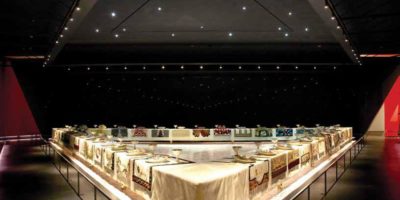Voices of Our Readers
As one of the three women featured as still-grieving mothers [“Losing a Child: How Grief Has Fueled Three Mothers’ Activism,” Winter 2006-07], thank you for your article opening up the possibility that death can be partially assuaged. I must amend one aspect of the article. Our family by itself was not in a position to start a foundation; we had to reach out. The Amy Adina Fund was and continues to be the work of many dedicated people and communities, all of whom wanted a meaningful vehicle for gifts in Amy Adina’s memory. Our mission has expanded beyond the support of hundreds of young adults in progressive social action of their own choosing.
I only wish we had realized that it is feasible to start a similar tzedakah fund without the need to heal raw personal grief. Had we truly understood “if not now, when?” we could have started such a fund with our communities, with our sons and with our daughter when she was alive! May your article inspire others to take action today to help all children in today’s and tomorrow’s world.
Ruth Schulman, Princeton NJ
I was so moved by the stories of the three mothers whose grief over their children’s deaths propelled and compelled them to do something to make the world better. I know another woman who has done that also, and I am constantly amazed to see what she has created from her intense sadness over the loss of her daughter––who was a dancer––in developing a program that offers dance instruction to kids in inner-city schools. I am in awe of this kind of response….
Rabbi Jacqueline Ellenson, via e-mail
Your interviews with grieving mothers are most meaningful to me, as we who have lost children grieve with the same broken heart. I applaud these women as activists. Most of us face the reality quietly, commemorating in our own way.
Irene Linder, Ewing, NJ
This note is my response to a letter about the 1992 conference Judaism, Feminism and Psychology [Fall 2006]. I was a young psychology student attending that conference, discovering a brand new joy in recognizing the beauty of Jewish feminist activists in one another’s company. What I took home with me included a best friend who has since become a psychologist, while I have become a Jewish communal worker. She and I live on opposite coasts, so I converse with my chevrutah [study partner] by email and cell phone, with only a rare, delicious and mind-tingling sushi date. Our friendship provides a framework for our work to support one another, ourselves and our world through weaving together the strands of our lives identified at that conference. Thanks for the opportunity to reflect on this memorable event, so perfectly located in your Best Friends issue!
What has augmented the meaning of this reflection, for me, is the juxtaposition of Lilith’s value in my life with the value of that friendship, since the hate crime shootings at my office here at the Jewish Federation of Greater Seattle. One can never predict the moment when she will need to rely on the exact resources we put in place for the safety and well-being of our sisters. I doubly appreciate the support and care of resources like Lilith, my friends, and the Jewish community of the world in the wake of this terrible brush with deadly anti-Semitism.
Marla Miriam, via e-mail


